10 Common Types Of Pests
Not sure if you need to call in the pest control experts? Pest management is not something you should manage alone, so if you suspect you might have an issue with the following 10 types of pests, we recommend speaking to a pest control company to find out the next steps.In homes and businesses up and down the country, these common types of nuisance pests are spreading diseases, causing property damage and making homes very unpleasant for residents.
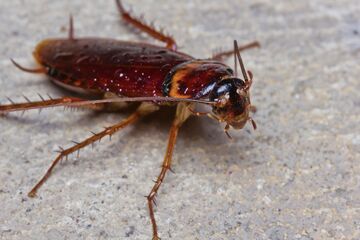
Night time pests – Cockroaches
At the top of our list is cockroaches. We might usually associate this scuttling pests with holidays abroad in warmer climates, but there are actually 2 species of cockroaches that are very common pests in the UK. They can spread rapidly, carrying diseases including dysentery and gastroenteritis. These critters are nocturnal, so you might miss them scurrying around your property at night, but you'll spot the droppings they leave.
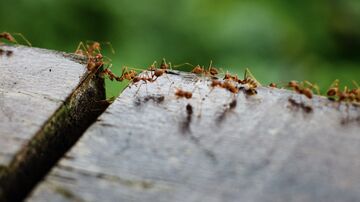
Garden pests – Ants
Ants can live and multiply in gardens without bothering anything or causing damage to plants, but once they head indoors looking for food, they quickly become an issue. Carpenter ants are the most common type of ants to venture indoors. Ants have incredible communication skills and will report back to the next when they've found food supplies, usually sweet and sugary morsels.
Find out more - How To Get Rid Of Ants
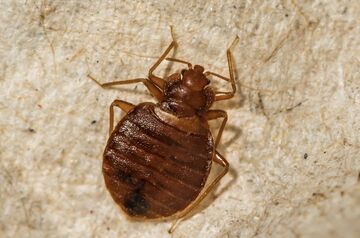
Travelling pests – Bed Bugs
Bed bugs are small insects that are attracted to the warm, soft and moist environments, and that usually means our bedding – hence the name bed bug. A bed bug deliver a nasty bite that can lead to raised welts on the skin. Bed bugs commonly find their way into homes on second hand furniture, or in your luggage after travelling. So, don't put your suitcase on your bed after a long trip, and always quarantine new furniture pieces before bringing them into your home. If you notice small spots of blood on your sheets, this could be a sign you have bed bugs.
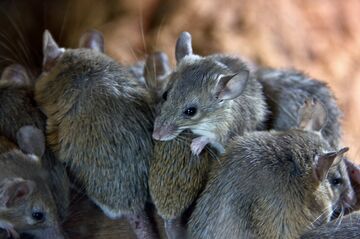
Common household pests – Mice
In the wild they're very cute, but in your home they can multiply rapidly and will also spread diseases. You might see the telltale signs of mice in your home by the signs of droppings by your skirting boards and damage to food packaging. Mice can cause a lot of damage to your home by chewing through wires and they can also be very noisy at night.
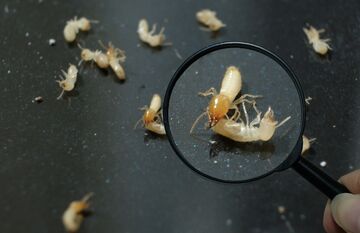
Structural damage pests – Termites
Termites are insects that enjoy feeding on rotting wood and different types of decaying plant matter. They can cause significant damage to timber framed homes by eating away at beams and causing them to crumble. Termites are not very common pests in the UK, as the climate is too wet for them to thrive.
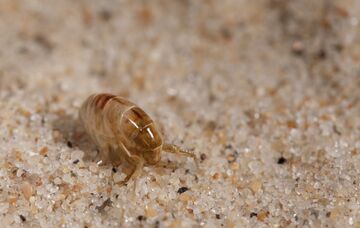
Pet owners pests – Fleas
If you have pets, you'll likely be familiar with these tiny jumping insects. They survive on cats, dogs and other animals, which makes them common agricultural pests. While they can't survive on humans, they will bite people, and this can lead to painful raised welts on the skin. Pets need to be treated so they cannot provide a nesting ground for fleas, and they will eventually die out. If left untreated, you could soon be facing a complete infestation that needs professional help.
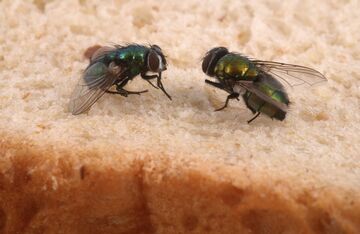
Buzzing pests – Flies
There are many different types of flies, including fruit flies, the house fly and cluster flies. They are commonly attracted to organic matter such as food scraps, which makes them common around bins. Your fruit bowl can also become a breeding ground for these small winged insects. Flies need to be dealt with quickly, as they can spread rapidly and cause illness by contaminating food.
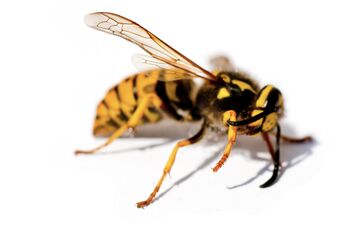
Summertime pests – Wasps
Wasps look similar to bees, but they don't have the same reception. Wasps can often be aggressive and territorial and will use their stingers when their nest is in danger. While they might be pollinators just like bees, people are less inclined to want them around their picnic blanket. The biggest risk with wasps is their sting, so homeowners typically prefer to stop them nesting near their properties.
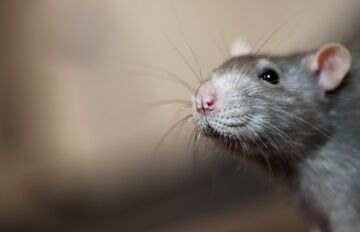
Home invader pests – Rats
Rats are all too common throughout the UK and are known to spread diseases. These large rodents are a common pest problem for homes and businesses. They are more than twice the size of mice and can cause much more damage. The brown rat is known to spread rapidly and can produce 15 to 100 young every year.
Related article - How To Get Rid Of Rats

Feral pests – Pigeons
Pigeons aren't usually problematic, but their droppings can quickly become a common public health hazard. The droppings can spread diseases and also make damp areas more slippy, which can cause a trip hazard. When pigeon populations get out of control, they are often referred to as feral.
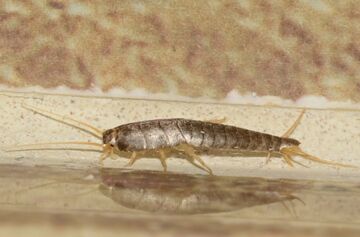
Nocturnal Insects - Silverfish
Silverfish, often misunderstood as a sign of untidiness, are actually frequent visitors to clean, well-kept homes in the UK. While their presence doesn't necessarily indicate a messy household, addressing a silverfish infestation is still a priority for many homeowners. In cases of significant infestations, it's advisable to seek help from professional pest control services. However, for those encountering just a few silverfish and seeking DIY solutions, there are several effective home remedies and methods available to eliminate these pests.
Helpful article - How To Get Rid Of Silverfish
Types of pests FAQs
When do I need to call pest control?
The nature of most infestations is that they multiply quickly. This means that a single mouse might not seem like a big problem, but if it is allowed to stay hidden in your home, you can guarantee it will multiply. You should call a pest control company at the first sign of a pest infestation in your home. The steps required to stop the infestation will vary depending on the type of pest and the extent of the issue.
How do I know if I have a pest infestation?
There are so many types of pests, it can be difficult to know when you have a problem. If you spot any of the following signs, it could be time to call in the professionals:
- If you notice damage to food packaging in your home or pet food is missing.
- If you spot animal droppings on the floor, near skirting boards, near bins or near entrance ways.
- If you notice scratching or gnawing sounds at night.
- If you notice a new bad smell around your home or near compost heaps.
- If you notice new holes in your clothes, this could be a sign of clothes moths.